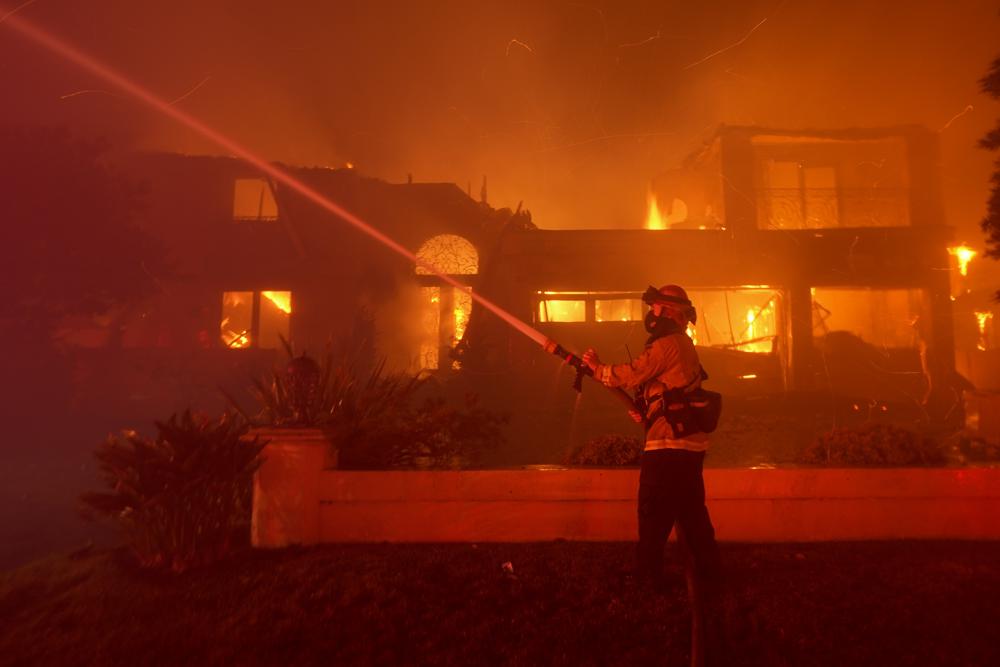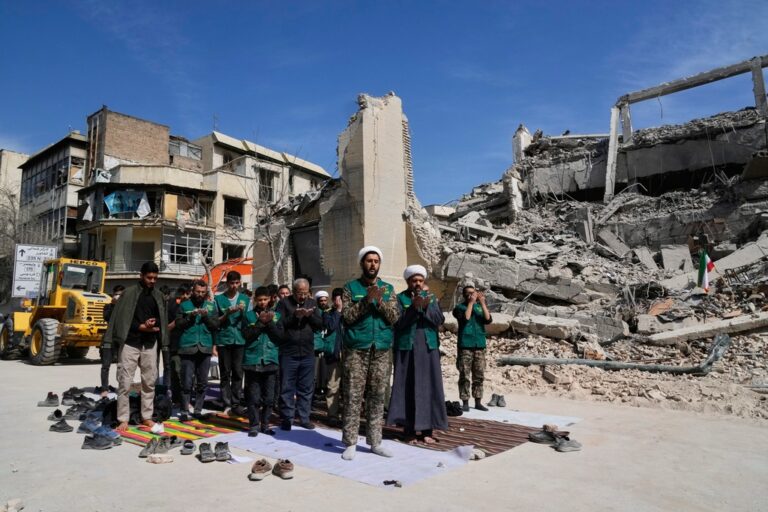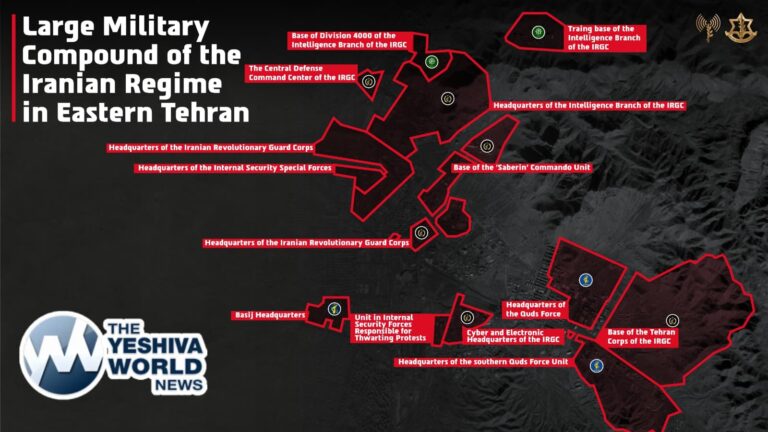Wildfires are on a furious pace early this year — from a California hilltop where mansions with multimillion-dollar Pacific Ocean views were torched to remote New Mexico mountains charred by a month-old monster blaze.
The two places could not be more different, but the elements in common are the same: wind-driven flames have torn through vegetation that is extraordinarily dry from years-long drought exacerbated by climate change.
As the unstoppable northern New Mexico wildfire chewed through more dense forest Thursday, firefighters in the coastal community of Laguna Niguel doused charred and smoldering remains of 20 large homes that quickly went up in flames and forced a frantic evacuation.
“The sky, everything was orange. It looked like an inferno, so we just jumped in the car,” Sassan Darian said, as he recounted fleeing with his daughter and father while embers swirled around them. “My daughter said, ‘We’re on fire.’ There were sparks on her and we were patting ourselves down.”
Nationwide, more than 2,000 square miles (5,180 square kilometers) have burned so far this year — the most at this point since 2018, according to the National Interagency Fire Center. Predictions for the rest of the spring do not bode well for the West, with the drought and warmer weather brought on by climate change worsening wildfire danger.
“We all know it’s really early for our fire season and we’re all in awe of what we’ve already experienced … to this point,” said Dave Bales, commander on the New Mexico fire that is the largest burning in the U.S.
Fire officials said there’s not much they could do to stop the fast-moving flames burning in tinder-dry forests in the Sangre de Christo range. It’s simply too dangerous to put firefighters ahead of a blaze that’s moving this hard and fast through overgrown mountainsides covered with Ponderosa pine and other trees sucked dry of moisture over decades.
Even small fires that once would have been easily contained are extreme threats to life and property because of climate change, said Brian Fennessy, chief of the Orange County Fire Authority.
The perfect example broke out Wednesday afternoon when flames that may have been sparked by electric utility equipment were pushed up a canyon by strong sea breezes and quickly ignited large homes. They burned a relatively small area — about 200 acres (81 hectares) — but left a large path of destruction.
A sprawling estate selling for $9.9 million had looked in real estate listings like a California dream: teeming with luxuries that included a two-level library, a “wellness wing” with sauna and steam room and a pool on a terrace overlooking scenic Laguna Beach.
By nightfall, the mansion once photographed against a pastel sunset had morphed into a nightmare: its arched facade silhouetted against a glowing yellow sky as firefighters trained their hoses on the engulfed structure.
After the big flames died down Thursday, the house was one of many smoking casualties marked off with yellow tape. In another driveway, a burned-out car rested on its rims. The steep surrounding hillsides were blackened and stripped of vegetation.
Many other homes appeared unscathed and palm trees that had survived the onslaught of embers swayed above in calmer winds.
Two firefighters were hospitalized but no other injuries were reported.
The fire’s cause was under investigation and damage inspections were still ongoing on Thursday, Orange County Fire Authority Assistant Chief T.J. McGovern said. Southern California Edison reported that unspecified electrical “circuit activity” occurred around the time the fire broke out late Wednesday afternoon.
Electric utility equipment has repeatedly been linked to starting some of the most disastrous California wildfires, especially during windy weather.
The state Public Utilities Commission last year approved a settlement of more than half a billion dollars in fines and penalties for SoCal Edison for its role in five wildfires in 2017 and 2018.
In the southern foothills of the Rocky Mountains of New Mexico, the fire appeared to spare Taos, a popular tourist and ski destination 40 miles (64 kilometers) south of the state line with Colorado.
With strong spring winds tossing embers into unburned territory, the fire has grown tens of square miles daily since starting April 6 when a prescribed burn intended to clear out brush and small trees — to prevent future fires — got out of control. That fire merged with another wildfire several weeks later, and the flames have now charred more than 405 square miles (1,050 square kilometers).
The blaze has burned more than 170 homes so far, but authorities have said that number is expected to increase significantly as more assessments are done and residents are allowed to return home to areas deemed safe.
The New Mexico fire has burned through mostly rural areas that include a mix of scattered ranch homes, historic Hispanic villages that date back centuries and high-dollar summer cabins. Some of the ranching and farming families who have called the area home for generations have spoken at length about the sacredness of the landscape, while many others have been too brokenhearted to express what they have lost.
The fire was expected to push north and east Thursday, but crews were anticipating a break on Friday and through the weekend as the forecast called for milder weather.
Still, many areas remained under evacuation orders, and crews were hustling ahead of the fire, clearing brush from around homes, laying hose lines and looking for more spots where they could build fire lines in hopes of slowing its progression.
(AP)











